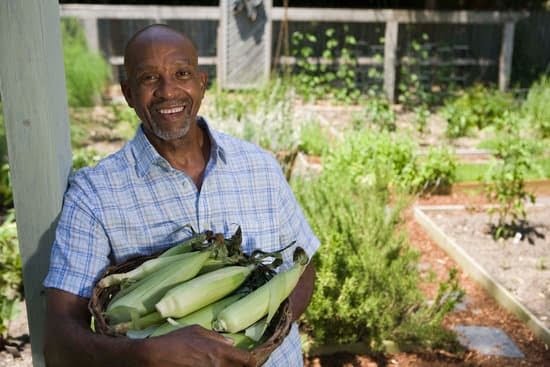Introduction to Black Gardening
Black gardening is a practice and appreciation of gardening that specifically celebrates African American history, culture and traditions. This type of gardening encompasses growing fruits, vegetables, herbs and flowers that not only provide food sustenance, but also maintain traditional labor practices found in plantation farming. It emphasizes the importance of sustaining healthy diets while producing medicine and nourishment through natural agricultural ingredients such as indigenous plants and herbs.
Black gardening also recognizes the spiritual significance held with nature by individuals in the African diaspora for building closer cultural ties and celebrating their heritage. In many instances, Black gardeners have had to become creative with cultivating foods since their counterparts were not able to receive resources from state institutions so needed a way to feed their families.
It has been an expression within African American communities over the decades for generations to come beyond just providing food nutrition but also acting as a symbol of resistance against racism. This type of gardening has become increasingly popular today as grassroots organizations, like urban farming collectives, have provided access to education on healthier lifestyle choices for communities lacking these options in major cities around America such as Detroit and Philadelphia. Benefiting both soil health and promoting community empowerment – Black gardening continues to bring back cultures connected with ancestral horticultural lineages that go back thousands of years.
Historical Context
Black gardening is a historical practice that has been shared and passed down from generation to generation within African-American communities. It began during the days of slavery when working on plantations and fields was the only way for Blacks to make a living, as land ownership was denied. Planting in the soil provided sustenance for slaves and their families, as well as an opportunity to connect spiritually with nature. Gardening itself also served a symbolic purpose – retaining some control over food production, even under oppression – which has played a vital role in defining African-Americans’ resilience throughout generations of hardship.
From this beginning, Black gardening moved off plantations and into Southern towns, finding its place in city acres; front yards, back yards, community gardens or plots set aside “for Negroes.” In churches or “raised bed gardens” with dirt brought in from outside their city limits. Families grew fruits and vegetables they couldn’t afford at the store using lessons taught by elders on crop rotation and natural pest prevention. This kind of gardening was seen by many African Americans as a form of survival sustainability–a way to feed themselves nutritiously despite unequal access to food safety laws, grocery stores and supermarkets that discriminated against people of color.
The practice of Black gardening continued onward through urbanization periods like The Great Migration (1916-1970) when thousands left the rural South seeking better opportunities in Northern cities like Detroit. However, due to impediments such as segregationist policies like redlining that made it more difficult for minorities to buy homes or avail themselves of quality health care, Blacks ended up working low paying jobs while still having limited access to healthy foods. This prompted smart solutions by entering into collective projects/cooperatives formed around gardening as well as growing food together on small patches of land– often informally or illegally — supplementing income rations or affording them with self-determined diets unpolluted by processed foods.
Throughout time mother earth embraced African Americans in need; its vital nourishment restoring cultural forms along side individual’s health/fitness which ultimately strengthened entire black communities from within outwards—allowing them greater self governance even during times when nothing else seemed possible . Outcomes stemming from these practices today include backyard gardens where much learning occurs between the young & old sharing knowledge amongst generations while they wait eagerly for harvest day’s lead bounty. Additionally additional rewards now come in unexpected places often times showing us sometimes history is truly circular beyond simply repeating itself serving instead too enlighten us further along our journey back home too timeless wisdom found everywhere we Look!
Benefits of Black Gardening
Black gardening offers many benefits to the individual, the community, and the environment. It can provide a sense of connection to the natural world, increased physical activity, and greater access to healthy local foods. Furthermore, gardening can help reduce stresses related to environmental concerns such as climate change and pollution. For those who identify with cultures or communities traditionally connected with farming and land cultivation, there can be an additional benefit in reclaiming their history through gardening.
For the environment, black gardening helps improve air quality by reducing pollutants in both urban and rural areas. Additionally, growing indigenous plants helps restore and maintain biodiversity.Native plants absorb carbon dioxide from the atmosphere while producing oxygen; thus they are a powerful tool in mitigating climate change. As gardeners cultivate native plants and wildflowers, they create new habitats for wildlife which further enhances biodiversity balance in ecosystems. Urban gardens can also be used to filter runoff from streets and roofs before entering water systems, reducing toxins often found in urban runoff that pollute rivers, streams and lakes if left untreated.
For individuals health wise black gardening is linked to emotional wellbeing due to its calming properties, improved mental clarity associated with being outdoors as well improved physical fitness levels resulting from regular exercise during gardening activities .Gardening also provides important access to healthy local foods as people grow their own fruits and vegetables at home or nearby community gardens. By connecting us to our natural environment through sustainable food production practices, black gardeners have taken back control of their food system while demonstrating self-reliance within their respective communities; this has been seen most prominently during times of crisis where having locally produced food has been life-saving for many families financially struggling during the pandemic
Tools and Techniques Used in Black Gardening
Black gardening tools and techniques have existed for centuries, but they’re only now gaining recognition in the gardening industry. From specialized pruning techniques to elevating plants from the ground to reduce disease, Black gardeners have developed innovative strategies meant to protect their harvests from various environmental threats.
Traditional hand tools such as hoes, shovels, and rakes are still used by Black gardeners today. However, many now prefer modern tools like pitchforks and weed whackers to make the process of tending the garden simpler. Additionally, some black gardeners opt for different soil mixtures which may include organic matter like compost or manure to provide their plants with vital nutrients. Other soil amendments include mulch made of tree bark, which helps prevent weeds while keeping soil moist without relying on artificial irrigation systems.
A popular practice among Black gardeners is raised bed gardening. This form of gardening involves building beds that are higher than traditional plantings so that water doesn’t pool near roots and cause rot or harbor pests. Raised beds can also provide a more stable environment for plant growth by providing more even temperature and improving aeration. This type of planning also allows smaller patches of space around crops to be used which encourages crop rotation and discourages diseases like blight from spreading too quickly between varieties of vegetables planted in the same area.
Other strategic planning methods employed by some black gardeners include companion planting – when two or more species are grown together in an area – as well as intercropping (clustering several crops in one area). Companion planting helps control insects naturally by repelling some varieties while attracting other beneficial insect types at times when harvest season arrives. Intercropping gives black gardeners a chance to feature an array of products that cater to their customer base – such as a mix of herbs sold at farmers’ markets – while limiting competition within the same plot from unaffiliated businesses seeking customers with similar produce items or competing prices.
Resources and Supplies Needed
Black gardening is on the rise as more and more people look for ways to create an outdoor space for themselves that honors their culture and heritage. To get started, some basic supplies and resources are needed. First, determine what type of outdoor area you want to create — a small urban garden or a larger rural homestead? Next, find the proper tools and supplies – from hoes and shovels to trowels and gloves. You’ll also need pots or planters in various sizes. Many hardware stores have these items available for purchase, but it’s also possible to find them second-hand at thrift stores, flea markets and yard sales.
When purchasing plants, check with local nurseries that specialize in rare and exotic plants that can withstand your region’s climate; they will also be better informed than big box stores on appropriate regional planting needs. Additionally, many nurseries carry native species of flowers and herbs — perfect for creating a natural oasis right outside your door! Online vendors are another great resource for finding plants; most offer delivery services so there is no need to leave home to get your new garden project underway. Finally, don’t forget landscape fabric or mulch to place around your newly planted items — this will help ensure that water doesn’t escape too quickly as well as protect from weeds.
Cultural Pride
Black Gardening is an important and meaningful way for African Americans to celebrate their identity, heritage, and culture. Planting and cultivating gardens has been a traditional pastime within Black communities for generations. It is not just a means of producing sustenance, but also a way to come together and foster camaraderie while honoring their ancestors—even participating in African spiritual rituals such as Yoruba love magic and Obi divination—and displaying divine beauty.
Black gardening is also used to promote positive changes in the African American community, specifically with respect to societal issues such as food access, food security, health disparities, justice reform, environmental justice, financial freedom, and education. In many cities across the U.S., Black gardeners are working to create systems where people can plant fruits and vegetables in public spaces; build greenhouses; collaborate on urban farms; reclaim abandoned lots for farming purposes; or provide supplies to low-income homeowners so they can start growing their own food at home. Additionally, some groups have implemented educational programs to teach others how to grow their own food with sustainable methods while promoting cultural pride and community building activities.
The future of Black gardening looks promising as more people become empowered by the ability to produce sustainably grown foods that nourish the body and soul. By utilizing the power of nature as an agent of self-determination—promoting shared identities rooted on history while creating equitable pathways towards living healthier lifestyles—African Americans are contributing significantly towards more socially conscious ways of life throughout the diaspora. Through holistic strategies like this one, Black gardening is helping shape an Afrocentric narrative that allows us all to thrive together for generations yet to come.
Advice for Beginner Gardeners
Black gardening is an important part of preserving African culture and heritage. It’s an experience that can help with grounding, relaxation, and connecting to the Earth. As a beginner gardener, you may feel overwhelmed by the thought of taking on such a big project. We’re here to give you advice that will get you off on the right foot and overcome any challenges in the process.
The first step to successful Black gardening is to decide which plants you want to grow in your space. Consider the amount of sunlight your area receives each day and what type of climate it has before making a decision. Research native or culturally-relevant plants that are best suited for your space and region. Additionally, consider what sort of container configuration works best for you – whether it be window boxes, ground beds, or something else entirely.
When it comes time to actually planting and growing your garden, having proper tools is essential. Investing in gardening tools such as adzes, hoes, spades and trowels will make this process easier and more efficient. Furthermore, make sure you practice proper soil preparation techniques so that your plants have optimal growing conditions; preparing your bed with potting soil composts fertilizers can result in greener results. Finally, don’t forget about adequate drainage – when choosing a location for your garden keep its proximity to water sources in mind! You need to make sure that there is good drainage otherwise the excess moisture can quickly create problems such as rotting roots or damping off diseases.
It’s also important not to ignore pests when creating your Black garden. Take steps like spray neem oil or other natural solutions on affected plants during planting season– this can effectively keep away annoying bugs like aphids or grasshoppers! Additionally, monitoring humidity levels is key; high levels provide fertile ground for fungal diseases which can ruin an entire crop in no time flat! Monitor manually or purchase temperature gauge equipment if needed to keep track.
Black gardening should be both enjoyable and rewarding experience – one that yields infinite possibilities for environmental justice activists who wish to cultivate cultural practices beyond what’s found on store shelves today! With these tips we hope new gardeners approach their green dreams with confidence while still being mindful of stringent guidelines necessary for growth balance out there in nature!
Conclusion
Black gardening provides a myriad of benefits both to the individual and community. As an important practice of self-sufficiency and autonomy, it creates a space where home-owners can become knowledgeable in traditional methods of growing food while learning what works best in their climates as well as better understand the nutrition needs of their families. It also allows individuals to reconnect with their cultural heritage through stories, knowledge sharing, and creating community spaces for cultivation and learning. Not only does this empower individuals, it strengthens communities by providing fresh produce, job opportunities, unifying shared experiences and memories in addition to creating meaningful generations within families that learn about understanding plants, growing food for trade or barter, backyard grilling clinics, garden education classes etc. We must therefore encourage more black people to take up gardening practices at every age level for themselves and for future generations so that its richness can continue to be passed on from one generation to another!

Welcome to my gardening blog! I am passionate about plants and enjoy sharing my knowledge and experiences with others. In this blog, I will write about everything related to gardening, from tips on how to get started to updates on my own garden projects.





